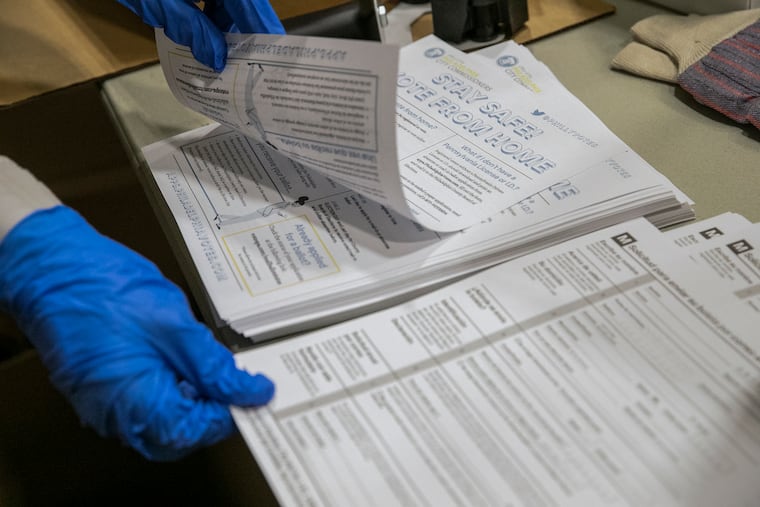Confused by Philly’s mail-in ballots? You’re not alone. | The Angry Grammarian
Voters encounter three grammatical sins that, taken together, will likely cause Philadelphians to make missteps that mean their votes go uncounted.

Let’s say you’re Pennsylvania. You’re excited to roll out the first election in which voters are allowed to request a no-excuses mail-in ballot, and you’re feeling pretty smug because you came up with this plan long before a pandemic made it a lot riskier to visit a polling place. You’re flying high.
And then Philadelphia bungles it all with three grammatically questionable choices in a single sentence of instructions.
Philadelphians voting by mail are confronted with the following warning on their primary ballots, which the city commissioners must receive back by 8 p.m. this coming Tuesday: “A voter who receives a Mail-In ballot and whose ballot is not timely received may only vote on Election Day by Provisional Ballot.”
In one fell swoop, voters encounter three grammatical sins that, taken together, will likely cause Philadelphians to make missteps that mean their votes go uncounted.
Sin #1: Weirdo capitalization.
Why are both Provisional and Ballot capitalized, but only the Mail-In of Mail-In ballot is capitalized? In truth, none of these words should be capitalized; they’re not proper nouns, and “but they’re important words” is the worst reason ever for capitalization. (Take note, presidential Twitter feeds.) If you’re not going to adhere to logic for your capitalization, at least follow some internal logic.
As a rule, the less capitalization, the better. Excessive capital letters distract the reader from your message. But random capitalization is worst of all, as it slows readers down even more. The more time they spend wondering why you capitalized certain words, the less attention they pay to what you’re actually saying.
Sin #2: Masquerading adverbs.
Remember the grade-school lessons and Tom Lehrer song in which you learned that words ending in -ly are typically adverbs? Forget those for a second.
Timely, despite ending in -ly, is almost always an adjective: “in a timely manner,” “their timely arrival.” That usage makes sense to our eyes and brains. But here it’s an adverb: “is not timely received.” That’s weird. Can you figure out what timely means here? Yeah, probably. But for a word that’s so commonly an adjective, throwing in the adverb usage here is, like the capital letters, distracting and confusing and awful.
The usage is repeated in the follow-up “Your Ballot Has Been Received” email: “Your ballot status has been updated to reflect your official ballot has been received timely and recorded. Please note: You are no longer permitted to vote at your polling place location now that you have returned your ballot timely.” You go to the trouble of voting on time and this is the grammatical thanks you get?
Purists will point out that, wait a minute, timely is in the dictionary as both an adjective and an adverb, and both usages are correct. And they’re not wrong. But the adverb timely is highly uncommon, and used primarily in legal writing. And who wants to talk to a lawyer?
Sin #3: The lonely only.
Any modifiers, whether adjectives or adverbs, should always sit as close as possible to the words they’re modifying. In this sentence, only is an adverb modifying the phrase “by Provisional Ballot” — and yet there are four blockading words (two of them capitalized! horror!) standing between only and its destiny. Separating any modifier from whatever it’s modifying obscures your meaning.
Taken together, these three problems will confuse voters. Some will fill out or mail in their ballots incorrectly, and those ballots could be discarded; some will throw up their hands and not submit their ballots at all. And that’s to say nothing of problems with ballot design or mailing. Plenty of voters are fools, so when it comes to ballots, language needs to be basic and foolproof.
As if you needed one more reason to pay attention to grammar: Our democracy just might depend on it.
The Angry Grammarian, otherwise known as Jeffrey Barg, looks at how language, grammar, and punctuation shape our world, and appears biweekly. jeff@theangrygrammarian.com.